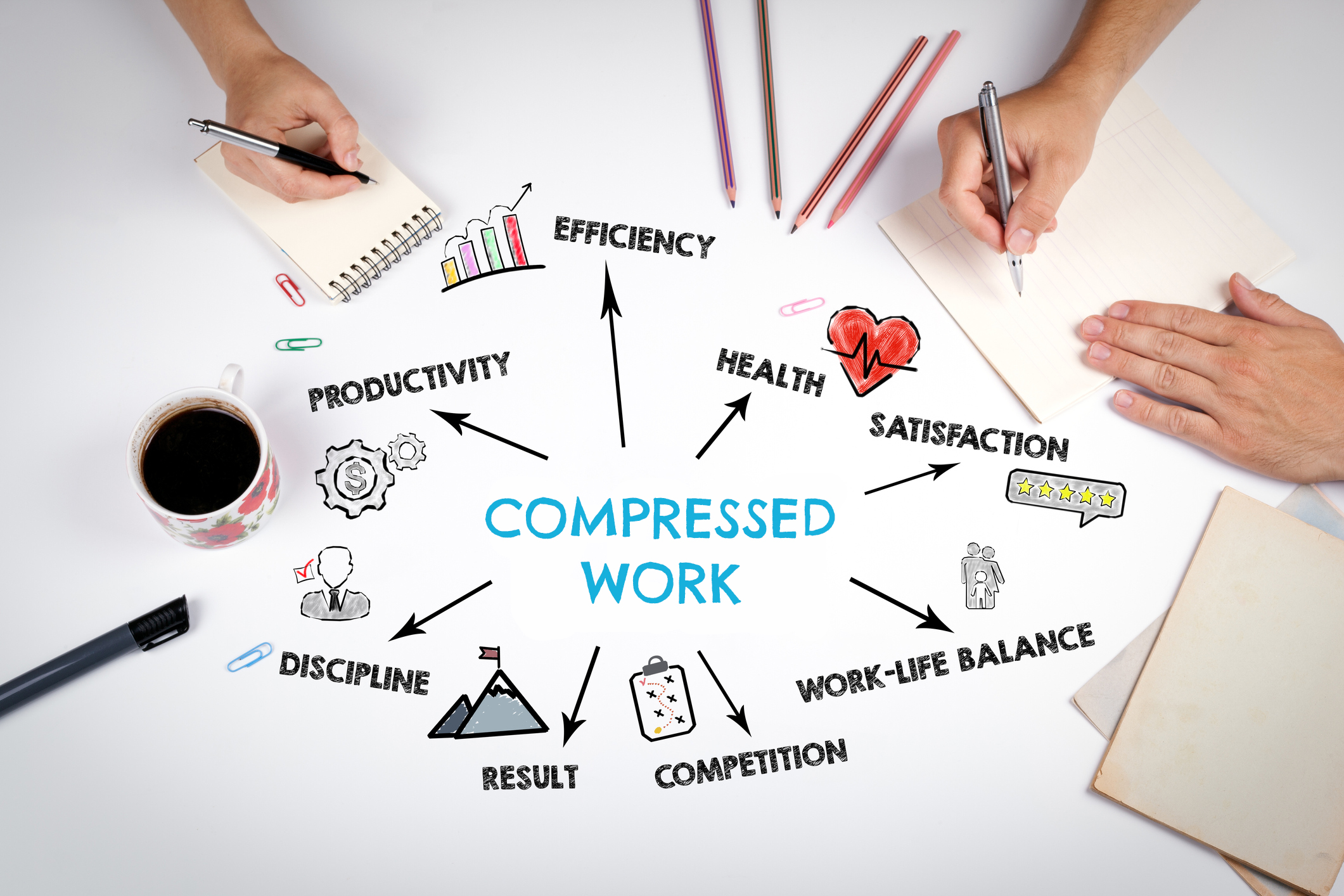Brand Story – Leverage compressed work by taking advantage of different scheduling options to help your workforce and organization thrive!
 Once an idea that provoked some skepticism, compressed work is gaining traction across the private and public sector for a wide range of job types.
Once an idea that provoked some skepticism, compressed work is gaining traction across the private and public sector for a wide range of job types.
Perhaps the most well-known form of compressed work is the 4-day workweek, traditionally more common among nurses and other healthcare professionals. Yet, there are many types of compressed work schedules that can be suited to different operations and job functions.
One national survey conducted by Resume Builder last year among 975 business leaders found that 20% of their organizations have compressed work options and 41% plan to implement policies for better job satisfaction, staff retention, and talent recruitment.
Compressed workweeks were also found to be more common today among onsite shift workers and professional staff during Get There Oregon’s 2023 statewide employer listening sessions.

- Employees today want work flexibility above most other job perks with the ability to balance work and personal life rating highly as a top benefit.
- Skyrocketing costs and longer distances traveled for work have added to the financial strain and time consumption of employee commutes, hurting retention and recruitment.
- A majority of workers must work onsite as required by many fields such as manufacturing, distribution, retail, or healthcare.
- Employers unable to extend remote work to employees can offer compressed work to ease commute pain and improve their work experience.
Compressed work is an alternative scheduling approach in which employees work a traditional workweek, generally 35 to 40 hours, in fewer than five days. There are many types of compressed work options, including the 4-day workweek, 9/80 schedule, and flextime, to best align with operations and job functions.
Download Get There Oregon’s employer guide on compressed work covering employee and employer benefits, schedule options, and implementation tips.
 Need help?
Need help?
Not sure how to get started on offering your employees commute support and benefits? Want to grow your program? Contact us: [email protected] or call 971-202-9758. We can also put you in touch with our local partners who can assist! Visit GetThereOregon.org for free resources and tools
Brand stories are paid content articles that allow Oregon Business advertisers to share news about their organizations and engage with readers on business and public policy issues. The stories are produced in house by the Oregon Business marketing department. For more information, contact associate publisher Courtney Kutzman.








